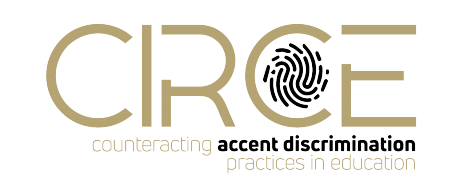CIRCE will analise and address the problem of accent discrimination in education. The school environment is a hotspot for
addressing accentism: students are exposed to different accents and form and reinforce attitudes towards them on the basis
of peer pressure; teachers are confronted daily with regional and non-native accents of the national language, and are at
risk of unconsciously succumbing to prejudice and negative evaluations of non-standard varieties.
The new superdiversity of contemporary European societies requires teachers to be better equipped with the knowledge,
skills and competencies needed to prepare students to live in increasingly multicultural settings. Conscious and unconscious
linguistic discrimination on teachers’ part can lead students from marginalised (linguistic) backgrounds to be judged more
negatively in terms of academic achievement.
Accent deprecation and discrimination also plays an important role in the foreign language classroom, particularly in English
language education. Foreign language curricula typically emphasise (inter-)cultural communicative competence as the
underlying goal of teaching and learning. This curricular goal, however, often contrasts with a classroom reality in which only
standard British and standard American English are held in high esteem whereas other accents are perceived as less
appropriate, less correct, or less educated - to the extent that some may even be associated with strong stereotypes and
negative social and cultural meanings . CIRCE will contrast such tendencies by promoting an inclusive approach both to
English as a lingua franca and other vehicular languages in the European context
|
 Ateneo
Ateneo Didattica
Didattica Ricerca
Ricerca Internazionale
Internazionale
